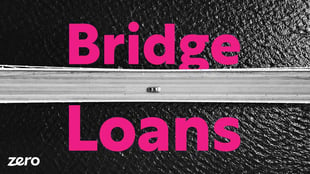What Is a Mortgage Broker?: Definition, Duties, and Advantages

There are many moving parts and various people you’ll deal with throughout the homebuying process. Depending on how you decide to find your lender, one of the professionals you might end up working with is known as a mortgage broker.
In this article, we’ll break down what a mortgage broker does and how working with one may assist you in your search for the perfect home. Let’s start by defining mortgage brokers and explaining what they do.
New to the homebuying process? Read our complete beginner's guide to buying a house here.
What Is a Mortgage Broker?
A mortgage broker is a licensed professional who helps homebuyers find a mortgage lender to hire and help them finance their homes. The mortgage broker does not provide the loan itself, but instead, the broker works as a kind of middleman.
Mortgage brokers bring the two parties together and look for loan options that will fit the buyer’s financial needs.
What Does a Mortgage Broker Do?
If you work with a mortgage broker as a way of finding a mortgage lender, they will start the process by looking over your financial information. This will allow them to understand how much you can afford to spend on a house and what type of loan will be the best fit for you.
This is similar to the process that you would go through with a lender when they gather your information for a pre-qualification letter. It’s smart to gather your personal information such as your income, current debt, and credit history. Put all of this information somewhere that is easy to access because it will help to expedite the process.
Your mortgage broker will use this information to determine what your overall loan will look like. Brokers will then get quotes from several different lenders that fit what you’re looking for and compare the rates. Once you and your mortgage broker have figured out which of the quotes is best for you, the broker will submit an application to that lender.
Eventually, a lender will approve you for the loan, and once you have secured the loan from your lender, you will move forward with the process and close on your home as usual. When you close, either you or the lender will pay the broker an origination fee.
This is how the mortgage broker makes their commission. They are paid in the form of an origination fee only if you choose to successfully close on a home thanks to a loan that the broker sourced for you.
Is a Mortgage Broker Right for You?
As you can imagine, there are both pros and cons of hiring a mortgage broker. While they bring a lot of expertise to the process of searching for a loan, it’s always important to be aware of the ways in which a mortgage broker might not work in your best interest as well.
Advantages of Working with a Mortgage Broker
- Bringing Connections to Your Mortgage Loan Search: As experts dedicated to matching customers with lenders, mortgage brokers have a strong network of lending companies. This makes it possible for them to find loan options that you may not have been able to find elsewhere.
- Streamlining the Application Process: If you’ve applied for a mortgage before, then you’re likely to be familiar with the back and forth nature of communication during the application process. It can take months to settle all of your financial details without a broker, but working with one can save you a lot of time. This is because they can apply for loans on your behalf once they have your information.
- Awareness of Hidden Fees or Increased Costs: Since mortgage brokers know the ins and outs of the lending process, they can spot hidden fees or other aspects of a loan offer that aren’t conducive to your situation.
We wrote a blog all about the unexpected costs that may come with a mortgage, read it here!
Disadvantages of Working With a Mortgage Broker
- Transparency About the Loan Search: Working with a mortgage broker typically takes some of the work off your plate, but it’s very important to determine that their interests align with yours. If they aren’t working with your best interest in mind, then they won’t make decisions that work out in your favor. Take the time to read reviews from past customers and consider shopping around prior to making a decision.
- If the Homeowner Pays the Origination Fee: Either the lender or the homeowner will have to pay the origination fee when you close on the house. If you as the homeowner have to pay, you will need to come up with the cost of the origination fee in addition to all of the other closing costs associated with the home. Borrower fees vary, but typically, they amount to 1% or 2% of the entire loan amount. A 1% origination fee on a $200,000 loan would be $2,000, and it would most likely need to be paid in the form of a cashier’s check.
- If the Lender Pays the Origination Fee: If the lender pays the mortgage broker’s origination fee, that means you’ll spend less money when you close on your home. However, watch out for brokers who agree to higher rates and fees on mortgage loans in order to look more attractive to lenders. This can cost you more money in the long run.
Read our blog all about the fees and costs associated with closing a mortgage here!
How Do You Find a Mortgage Broker?
It’s easy to search the internet and find mortgage brokers near you. However, vetting them and figuring out their intentions is important, even though this can be a time-consuming process. If you can, seek out referrals from friends or family members.
Just as it’s good to shop around for lenders, it’s also smart to find two or three mortgage brokers whom you can interview. Additionally, compare the rates of all of the lenders you’re considering to see which one financially is a better fit for you. That way, you’ll be able to be confident in knowing that you have a trusted professional on your team.
Mortgage Brokers vs. Loan Officers
It’s important to not confuse mortgage brokers with loan officers. Loan officers can also help you understand what interest loans you qualify for, but they work for a bank or as part of a lending institution. Mortgage brokers work independently for their customers, meaning they will have your best interest in mind instead of a company’s best interests since they are not affiliated with any institution in particular.
Our Mortgage Learning Center features blogs on a wide range of mortgage and refinancing topics.
Working With Mortgage Brokers to Find Your Mortgage Loan
Mortgage brokers act as middlemen between borrowers and lenders. They help borrowers find loans that work best with the borrower’s financial needs and constraints.
While either the borrower or the lender will have to pay an origination fee at closing, the expertise that mortgage brokers bring to the mortgage loan search process can be invaluable in sourcing great options for the borrower. Comparing and interviewing an array of mortgage brokers before working with them can ensure that the borrower is working with the right mortgage broker for them!
Ready to Lock in a Great Rate?
This page last updated: October 18, 2022
Read more on this topic below.

When you buy a house and start making mortgage payments, your payment consists of four different components, known...

If you have gone through the pre-approval process but need to take a deeper dive into how much house to buy,...

The vast majority of mortgage loans require you to put down a certain percentage of the selling price upfront....

Whether you’re a first-time buyer or you’ve purchased a home before, you’ve likely heard of a homeowner’s association....

There’s a lot of expenses to keep in mind when you’re thinking about buying a home. Between the price of the home, property taxes, your mortgage...

Conventional loans are mortgages offered by private lenders, banks, and institutions that are not backed by the government. Unlike FHA, USDA,...

Some homebuyers refuse to purchase a property if it is part of a property owner association. On the...

Research indicates that 58% of homeowners in HOA communities and single-family homes pay an average monthly fee...

Private mortgage insurance is something millions of homeowners pay for each year. However, this type of insurance does not protect

When you first set out to buy a home, it can feel like you’re taking an exam you forgot to study for. You have to make quick...

When looking to refinance or buy a house, the pre-qualified vs pre-approved mortgage debate can be...

It’s likely that your mortgage loan will be the largest loan you have during your lifetime. Mortgages are not a one size...

For many people, owning a home is part of the American dream. To make this dream a reality, most people will take out a...

Whenever you’re looking to buy a house, you’ll quickly realize there are a lot of fees associated with obtaining a mortgage....

A bridge loan is a short-term loan a borrower may use while a more long-term financing contract is finalized. Bridge...

A loan estimate is crucial to obtain when looking for a loan. This estimate not only gives you the details of a mortgage but also compares offers...

If you’re looking to buy a house, and do not have a mountain of cash saved up, you’ll need to consider getting a mortgage to help you finance this...

If you find a property that you’re highly interested in buying but are concerned that the seller might choose...

Buying a home? You’ll likely need to get it appraised before you receive the clear to close. If you’re wondering...

If you’re an active service member, a veteran, or the surviving spouse of a veteran, and you want to ...

There’s no doubt, COVID-19 changed the world in countless ways and took us all by surprise. From an...

Whenever you are borrowing money, whether it’s for a new mortgage, a refinance, credit card, or car loan, you’ll hear...

If you’re new to buying a home, you probably have quickly realized the overwhelming amount of options there...

If you’ve already gone through the lengthy process of writing offers, securing financing, and arranging inspections for your...

One of the most important steps to buying a home is deciding on a mortgage loan and deciding on a loan involves settling on a good...

First time home buyers are often surprised when they learn about all of the expenses that are associated with ...

Purchasing real estate is not as simple as finding the right home, submitting an offer, and signing the closing paperwork; many...
